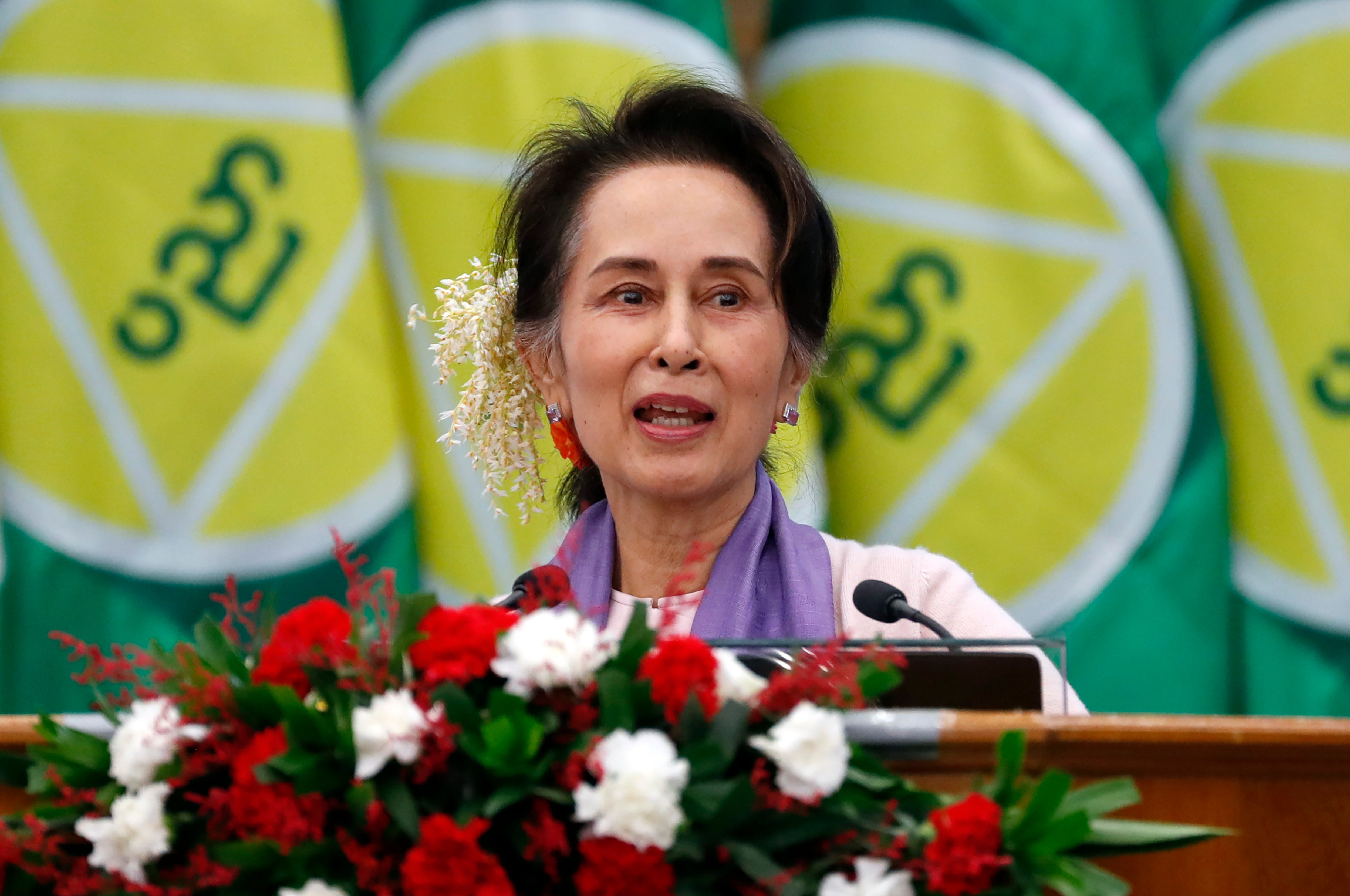Suu Kyi's party faces dissolution in military-ruled Myanmar
The political party led by Myanmar’s ousted leader Aung San Suu Kyi is expected to face automatic dissolution by the military-appointed election commission because it declined to register for a planned general election it denounced as a sham

The political party led by Myanmar's ousted leader Aung San Suu Kyi is expected to face automatic dissolution by the military-appointed election commission on midnight Tuesday because it declined to register for a planned general election it denounced as a sham.
Critics say the polls will be neither free nor fair in a country ruled by the military that has shut free media and arrested most of the leaders of Suu Kyi’s National League for Democracy.
“We absolutely do not accept that an election will be held at a time when many political leaders and political activists have been arrested and the people are being tortured by the military,” said Bo Bo Oo, a former party lawmaker.
Suu Kyi, 77, is serving prison sentences totaling 33 years after being convicted in a series of politically tainted prosecutions brought by the military. Her supporters say the charges were contrived to keep her from actively taking part in politics.
The party won a landslide victory in the November 2020 general election, but less than three months later, the army kept her and all the elected lawmakers from taking their seats in Parliament, and top members of her government and party were detained.
The army said it acted because of a massive poll fraud, though independent election observers did not find any major irregularities. Some critics of Senior Gen. Min Aung Hlaing, who led the takeover and is now Myanmar’s top leader, believe he acted because the vote thwarted his own political ambitions.
No date has been set for the new polls. They had been expected by the end of July, according to the army's own plans. But in February, the military announced an unexpected six-month extension of its state of emergency, delaying the possible legal date for holding an election. It said security could not be assured. The military does not control large swaths of the country, where it faces widespread armed resistance to its rule.
“Amid the state oppression following the 2021 coup, no election can be credible, especially when much of the population sees a vote as a cynical attempt to supplant the landslide victory of Aung San Suu Kyi’s National League for Democracy (NLD) in 2020,” said a report issued Tuesday by the Brussels-based International Crisis Group think tank.
“The polls will almost certainly intensify the post-coup conflict, as the regime seeks to force them through and resistance groups seek to disrupt them.”
The military government enacted a new political party registration law in January that makes it difficult for opposition groups to mount a serious challenge to its favored candidates. It sets conditions such as minimum levels of membership and candidates and offices that any party without the backing of the army and its cronies would find hard to meet, especially in the repressive political atmosphere.
The new law declared that existing political parties had to re-apply for registration with the election commission within two months after it took effect — by March 28 — and those that fail will be “automatically invalidated” and considered dissolved. It also says the party has to entrust its properties to the government if it is dissolved of its own volition or when its registration is canceled under the law.
The National League for Democracy rejected the law just days after it was announced, saying at the same time that the military-planned polls are illegal and amount to a “sham election.” It declared that any individuals and entities cooperating in the polls with the military will be deemed as accomplices in high treason.
Bo Bo Oo said that a March 21 meeting of the party's Central Working Committee reaffirmed the decision not to register, and considers the election commission and registration law illegitimate.
The state-run Myanma Alinn daily newspaper reported on Saturday that a total of 52 political parties had applied to the election commission for registration under the new law. Twelve applied to contest at the national level and 40 at the level of regions and states. The commission must approve their applications.
Bookmark popover
Removed from bookmarks